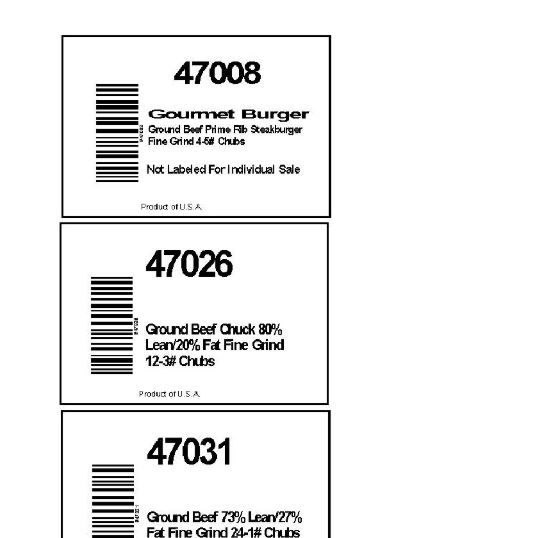Less than a month ago, Cargill Meat Solutions announced their ground beef was contaminated with E. Coli for the second time, and unfortunately, not only did it cause illnesses, it resulted in one death.
While that situation seems to be under control now, another massive recall has cropped up this week.
On October 4, the United States Department of Agriculture (USDA) issued one of the biggest meat recalls of the year.
Here's what you need to know
According to the federal organization, more than 6.5 million pounds of meat manufactured by JBS Tolleson Inc. may be potentially linked to a nationwide salmonella outbreak.
The Food Safety and Inspection Service (FSIS) branch of the USDA has determined that these products are the "probable source" of the 57 cases of salmonella reported in 16 states between August 5 and September 6.
The Arizona-based company shipped "various raw, non-intact beef products," including ground beef and burgers, to retailers all over the country that sold them under different brand names, including Walmart, Cedar River Farms Natural Beef, Showcase, and JBS Generic.
"FSIS is concerned that some product may be frozen and in consumers' freezers," read the announcement.
The recalled products, which were packaged between July 26 and September 7, have a USDA inspection mark with the establishment number "EST.267" printed on the packaging.
If you have any meat products that fit this description, you're urged to throw them away or return them to where you purchased them.
Symptoms to watch for
Salmonella's symptoms usually start 12 to 72 hours after a person eats food contaminated with the dangerous bacteria, according to the Mayo Clinic.
Diarrhea, cramps, fever that spans several days, nausea, bloody stools, chills, headache, and vomiting are all characteristics of the food-borne illness.
Many of these signs will last for up to a week, but diarrhea may persist, which usually becomes a cause for hospitalization.

Babies, the elderly, and those with weakened immune systems are at a higher risk of experiencing severe illness.
If you suspect that you or a member of your family has eaten recalled meat, you should monitor the symptoms and contact your health care provider right away.
As a rule of thumb, use a meat thermometer to check the internal temperature of meat you're cooking. Make sure it reaches at least 160 degrees Fahrenheit in order to eliminate bacteria that could cause illness.
"The only way to confirm that ground beef or other cuts of beef are cooked to a temperature high enough to kill harmful bacteria is to use a food thermometer that measures internal temperature," says the USDA.



